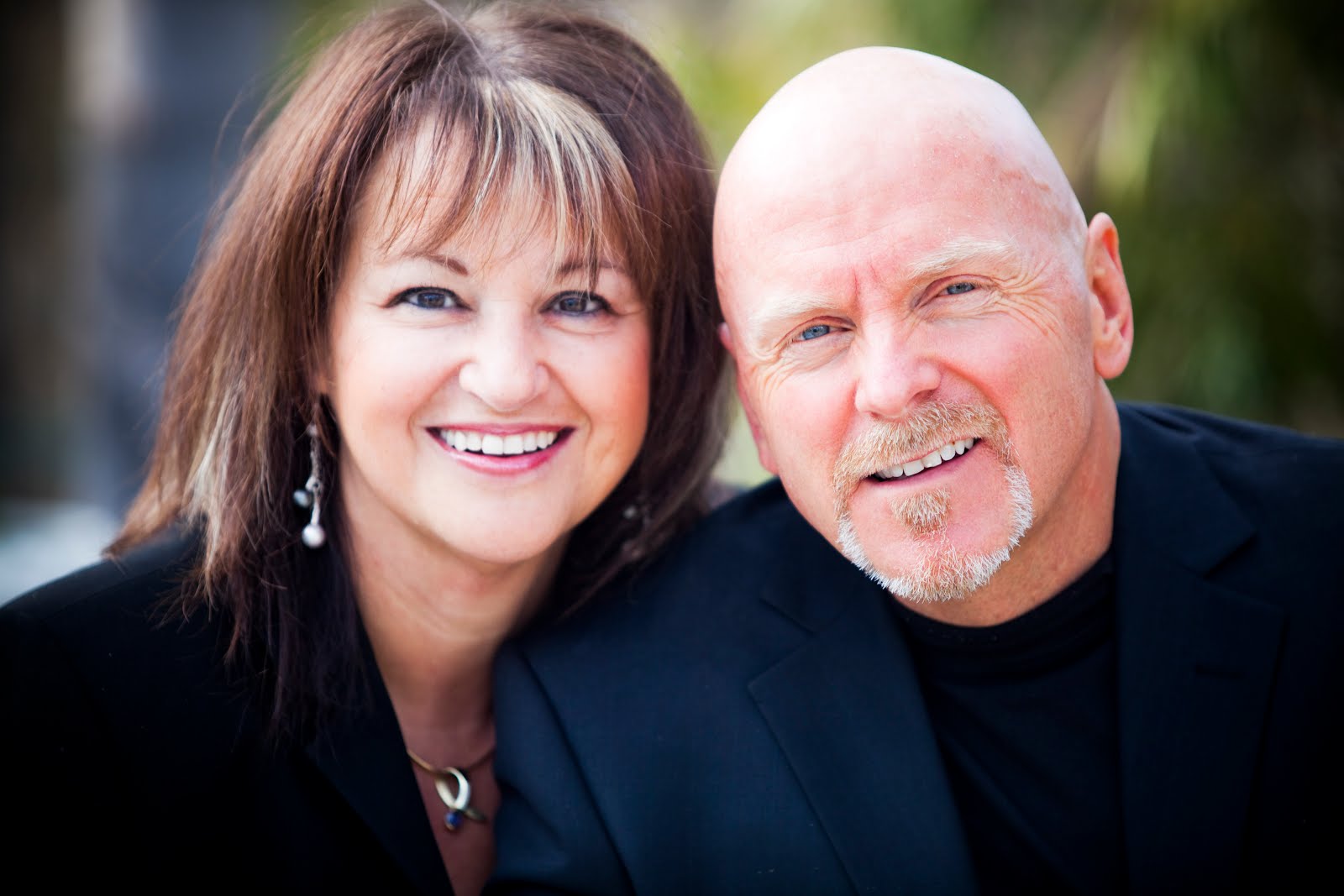What would make you a happier person? More money? A perfect spouse? A nicer car? Well, according to Dr. Davidicus Wong, it's the INTENTION (where have we heard this word before???*bootcamp* maybe?) to be happy that MAKES us happy on a daily basis. This is a great little article, and maybe a refresher from BootCamp for you on how to BE committed to DO what it takes to HAVE what you want.
Enjoy!
"We usually thing of the causes for both our happiness and unhappiness as something outside of ourselves.
We are unhappy because we're having car troubles or we're so broke that we can't afford a car, we've got relationship problems or we're between relationships, we're out of work or we don't like our work, we don't seem to have any choice in life or we have too many choices and we can't decide.
With life's ups and downs, there's always something to make us unhappy.
And when we're unhappy we often look to the world or someone else to blame.
Life will never be perfect, but does that mean that we are all destined to be unhappy?
The happiest people I meet in my practice do not have the fewest medical problems nor do they have the most money. They do tend to have happier spouses and children.
Rick Foster and Greg Hicks studied the characteristics of ordinary people who enjoyed a consistently high level of happiness defined by their own self-assessment of a sense of well-being. In their book, How We Choose to Be Happy: The Nine Choices Of Extremely Happy People: Their Secrets, Their Stories, they describe happiness as a set of attitudes, beginning with the intention to be happy.
We all want to be happy, but most of the time, we go about it the wrong way.
We consume a lot of time and energy pursuing things we think will bring us happiness: the dream job, a perfect mate, more money, more things. When we don't get them, we remain frustrated. When we do get them, we can be disappointed to discover that our happiness is fleeting.
Foster and Hicks discovered two overarching themes in their research with extremely happy people. The first was that happiness comes from within. It doesn't come from something outside yourself.
The second was that you can choose to be happy. You don't have to wait for the bluebird of happiness to land on your windowsill.
That's not to say that we are responsible for misfortune, ill health or the catrastrophes in our lives.
In fact, Foster and Hicks' book is filled with examples of people who chose to be happy in spite of terrible circumstances. We can't choose what life throws at us, but with awareness and courage, we can choose how we will catch and respond to whatever we get.
Foster and Hicks identified the nine choices of extrememly happy people: intention, accountability, identification, centrality, recasting, options, appreciation, giving and truthfulness.
...
It all begins with intention, which Foster and Hicks defines as "the active desire and commitment to be happy and the fully conscious decision to choose happiness over unhappiness."
Choose to be happy everyday."
-taken from "Healthwise, Dr Davidicus Wong, in Burnaby NOW, Wednesday, April 20, 2011 pg A32
Living Above the Line
Relationship Help Centers - RON & TINA KONKIN, - Living Above The Line is the legacy we want to create for every man, woman, and child because we believe life was meant to be lived abundantly. To learn more about how you can live a fulfilled life both personally and in your relationships then Living Above The Line with the Konkins is a blog you will want to follow.
Visit The Relationship Help Centers Website Here!
Relationship Help Centers offers the renown Exclusive Couples Retreat & the intensive Relationship BootCamp. Both are recommended by Dr. Phil and used as a resource on his website. Gene Simmons & Shannon Tweed-Simmons attended the Exclusive Couples Retreat before they decided to tie the knot. Visit www.RelationshipHelpCenters.com www.RelationshipBootCamp.com www.CouplesRetreat.com for more information on all of our programs.
Relationship Help Centers offers the renown Exclusive Couples Retreat & the intensive Relationship BootCamp. Both are recommended by Dr. Phil and used as a resource on his website. Gene Simmons & Shannon Tweed-Simmons attended the Exclusive Couples Retreat before they decided to tie the knot. Visit www.RelationshipHelpCenters.com www.RelationshipBootCamp.com www.CouplesRetreat.com for more information on all of our programs.
Tuesday, April 26, 2011
Tuesday, April 12, 2011
Smile for No Reason At All...
Sometimes simple little habits that we create can have a huge impact on our lives... both positive and negative. I came across this article from http://www.happiness-project.com/ and it has such a great, simple, easy tip to create AND spread more happiness by practicing one simple little habit; SMILING : )
I hope you're smiling by the end of it! ENJOY!
Need a reason to smile as you walk down the street or drive alone in your car?
As part of my resolution to “Lighten up,” I’ve been trying to remember to smile in odd moments.
At first I felt a bit silly as I walked along with a smile on my face, but I quickly realized that no one minds if you’re looking happy. I also try to smile whenever I interact with someone—buying a cup of coffee, checking in at the gym, going through security before going up to an office (is it only in New York City that you have to show your driver’s license in order to go into an office building?).
Facial expressions don’t merely reflect emotions, they also affect emotions. In “facial feedback,” studies show, the mere act of smiling makes people happier—even when they smile mechanically, as I’m doing, or when they’re asked not to “smile” but rather to contract specific facial muscles.
Random smiling is an example of my resolution to “Act as I want to feel”: while people suppose that feelings inspire actions, in fact, actions also inspire feelings. So by acting happier, I should feel happier. And you know, I think I do. “Sometimes your joy is the source of your smile,” Thich Nhat Hanh wrote, “but sometimes your smile can be the source of your joy.”
Also, because of emotional contagion, people often mimic the faces of people they see. I’ve definitely noticed that people are much more likely to smile at me when I’m smiling.
The biggest challenge is to remember to do it. I’m reminded of my various efforts to improve my posture. I’m good for a little while, then get distracted and don’t think about it for the rest of the day. So I’ve been trying to use the sight of a traffic light as a prompt.
I hope you're smiling by the end of it! ENJOY!
Need a reason to smile as you walk down the street or drive alone in your car?
As part of my resolution to “Lighten up,” I’ve been trying to remember to smile in odd moments.
At first I felt a bit silly as I walked along with a smile on my face, but I quickly realized that no one minds if you’re looking happy. I also try to smile whenever I interact with someone—buying a cup of coffee, checking in at the gym, going through security before going up to an office (is it only in New York City that you have to show your driver’s license in order to go into an office building?).
Facial expressions don’t merely reflect emotions, they also affect emotions. In “facial feedback,” studies show, the mere act of smiling makes people happier—even when they smile mechanically, as I’m doing, or when they’re asked not to “smile” but rather to contract specific facial muscles.
Random smiling is an example of my resolution to “Act as I want to feel”: while people suppose that feelings inspire actions, in fact, actions also inspire feelings. So by acting happier, I should feel happier. And you know, I think I do. “Sometimes your joy is the source of your smile,” Thich Nhat Hanh wrote, “but sometimes your smile can be the source of your joy.”
Also, because of emotional contagion, people often mimic the faces of people they see. I’ve definitely noticed that people are much more likely to smile at me when I’m smiling.
The biggest challenge is to remember to do it. I’m reminded of my various efforts to improve my posture. I’m good for a little while, then get distracted and don’t think about it for the rest of the day. So I’ve been trying to use the sight of a traffic light as a prompt.
Subscribe to:
Posts (Atom)

